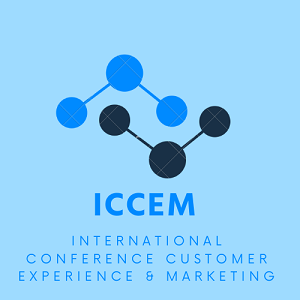Appel à ContributionsThe future of customer experience promises several trends, such as the focus on personalization, the rising importance of data analytics, and the spread of artificial intelligence and automation.Technology is one of the key drivers of customer experience and co-creation (Kumar et al., 2019; Anshu et al., 2022). As digitization is progressing, customer experience trends will be constantly shifting. By promoting chatbots, predictive analytics, video marketing, and personalized and consistent communication, organizations may discover new channels to engage their customers (Davenport et al., 2020). In doing so, companies have the opportunity to strengthen their customer relationships and build loyalty. With an edge, companies can make customer engagement their top priority to delight the their clients. Research in marketing to date is missing a deeper understanding how and when specific factors affects the customer experience and the co-creation (Carvalho and Alves, 2023). More specifically, an active debate has emerged in the field of customer experience research in recent years. It addresses these questions: 1) How do companies manage customer experience and how is value creation shaped, designed, and what are its trends, opportunities and challenges? 2) What are the antecedents, outcomes and dimensions of customer value co-creation ? In addition, "Metaverse" is definitely disrupting and completely reshaping the world's business environment, and is affecting all sectors: luxury, tourism, hospitality, education, retail, healthcare, etc. The metaverse has significantly redefined business models, innovation strategies, and marketing policies across companies (Buhalis et al., 2022). In light of this new technological disruption, metaverse issues emerged as a relevant and central topic to be explored and examined in depth for potential lessons, new challenges and opportunities arising from its use. However, current literature lacks consensus regarding the adoption and operationalization of the metaverse and whether it leads to higher or lower customer engagement. We want to embrace several dimensions of customer experience as well as metaverse. Furthermore, these dimensions and predictors should be captured inlight of the challenges, opportunies and mechanisms to better undersand the effects of current transitions on both business and societal dynamics. The conference call for papers seeks academic manuscripts that explore these changes and their implications in depth. To this end, special issues are focused on customer experience, co-creation, company practices in marketing services and metaverse challenges and its application domains. In this special issue, we seek to publish high-quality research articles that explore current and future trends in customer experience and metaverse and related topics. Both theoretical and empirical research articles that discuss the managerial implications in depth are required. In the current context, we also emphasize the interdisciplinary nature of the topic by explicitly inviting researchers from a variety of disciplines to address, but not be limited to, the following topics:
References : Buhalis, D., Lin, M. S., & Leung, D. (2022). Metaverse as a driver for customer experience and value co-creation: implications for hospitality and tourism management and marketing. International Journal of Contemporary Hospitality Management, 35(2), 701-716. Carvalho, P., & Alves, H. (2023). Customer value co-creation in the hospitality and tourism industry: a systematic literature review. International Journal of Contemporary Hospitality Management, 35(1), 250-273. Davenport, T., Guha, A., Grewal, D., & Bressgott, T. (2020). How artificial intelligence will change the future of marketing. Journal of the Academy of Marketing Science, 48, 24-42. Dwivedi, Y. K., Hughes, L., Baabdullah, A. M., Ribeiro-Navarrete, S., Giannakis, M., Al-Debei, M. M., ... & Wamba, S. F. (2022). Metaverse beyond the hype: Multidisciplinary perspectives on emerging challenges, opportunities, and agenda for research, practice and policy. International Journal of Information Management, 66, 102542. Kumar, V., Rajan, B., Venkatesan, R., & Lecinski, J. (2019). Understanding the role of artificial intelligence in personalized engagement marketing. California Management Review, 61(4), 135-155. VENUE The conference will take place at Paris School of Business (59 Rue Nationale 75013) – Paris (France). PAPER/ABSTRACT SUBMISSION PROCEDURE To submit a paper please login into your sciencesconf.org account or create an account if you do not have one. Please submit your Full Paper / Extended Abstract in PDF formats via the conference website by May 28, 2023 The first page of your submission must contain the title, author(s) and contact information of the corresponding author. IMPORTANT DATES
CONTACTS Wissal BEN ARFI (w.benarfi@psbedu.paris) Looking forward to meeting you in Paris School of Business The Conference Organizers
|


